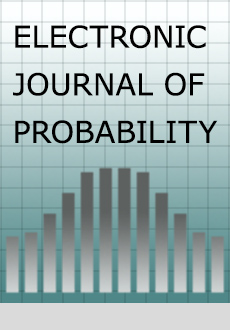Abstract
The Poland-Scheraga model is a celebrated model for the denaturation transition of DNA, which has been widely used in the bio-physical literature to study, and investigated by mathematicians. In the original model, only opposite bases of the two strands can be paired together, but a generalized version of this model has recently been introduced, and allows for mismatches in the pairing of the two strands, and for different strand lengths. This generalized Poland-Scheraga (gPS) model has only been studied recently in the case of homogeneous interactions, then with disordered interactions perturbed by an i.i.d. field. The present paper considers a disordered version of the gPS model which is more appropriate to depict the inhomogeneous composition of the two strands (in particular interactions are perturbed in a strongly dependent manner): we study the question of the influence of disorder on the denaturation transition, and our main results provide criteria for disorder (ir)-relevance, both in terms of critical points and of order of the phase transition. Surprisingly, we find that criteria for disorder relevance depend on the law of the disorder field. We discuss this with regards to Harris’ prediction for disordered systems.
Citation
Alexandre Legrand. "Influence of disorder on DNA denaturation: the disordered generalized Poland-Scheraga model." Electron. J. Probab. 26 1 - 43, 2021. https://doi.org/10.1214/20-EJP563
Information





